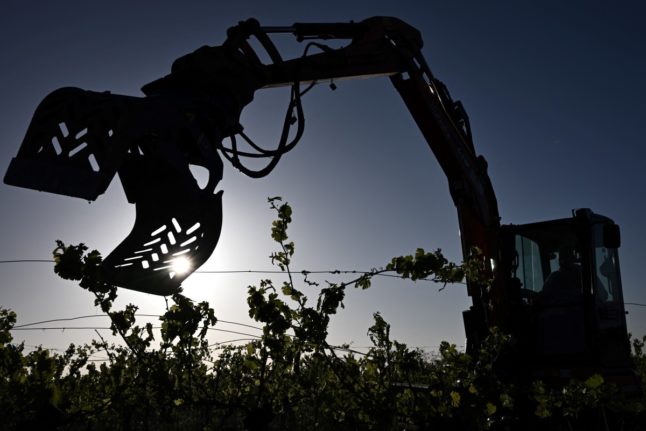The mayor of Toulouse has put forward plans to charge residents more for their tap water in summer, offering a discount the rest of the year.
At the Occitanie COP, Toulouse metropole mayor Jean-Luc Moudenc, argued in favour of this alternative to the progressive pricing system mentioned by Emmanuel Macron when he presented his “Water Plan” earlier this year.
READ ALSO EXPLAINED: How to check water restrictions in your area of France
In basic terms, this pricing system would involve raising the price of water during the period of the year when the resource is most in demand and in short supply, between June and October.
This new pricing system could be implemented as early as next year. The scheme was due to be debated by councillors this week. Tests will then be carried out early in the new year, before the implementation is rolled out during the low-water period starting next June.
Under his plan, consumers would then benefit from a discount on the price of water during the rest of the year, when there is less pressure.
“Without impacting the bill paid all year round by users, the idea is to modulate the price to encourage consumption adapted to the season and preserve the resource: cheaper in winter, when there is no shortage of water, more expensive at the height of summer when water becomes scarce,” Moudenc posted on his X account on November 30th.
Heureux d'accueillir la COP Occitanie avec @ChristopheBechu, Ministre de la Transition écologique et de la Cohésion des territoires de France, et de @FaureDominique, Ministre déléguée chargée des Collectivités territoriales et de la Ruralité.
Objectif : mettre au point de façon… pic.twitter.com/o9LflS58ny— Jean-Luc Moudenc (@jlmoudenc) November 30, 2023
Moudenc’s position is based on a recent recommendation by the Conseil économique, social et environnemental (Cese).
Cese came up with nine recommendations, “for sober use and equitable access to quality drinking water”, including introducing seasonal pricing, “in all communes where the balance between water resources and consumption is threatened on a seasonal basis.”
The government’s Water Plan also includes an increase in the rate per cubic metre based on consumption, which would penalise large families. The plan has not met with much favour in southwest France.
Robert Médina, President of Eau Toulouse Métropole, told La Dépèche: “Our metropolis has almost 70 percent collective housing, which makes the idea of a simple progressive pricing scheme obsolete. In apartment buildings, there’s a single water supply and shared billing. So we couldn’t itemise it, and everyone would have to pay higher water prices. That’s not fair … the city of Montpellier has abandoned this scheme.”
While seasonal pricing does not meet with unanimous approval among the various local political forces, its advocates are keen to ensure that its introduction would not result in higher bills for the Toulouse metropolitan area’s 800,000 residents.
“We’ve devised a system that doesn’t penalise anyone, based on a 40 percent increase in rates during the Garonne’s low-water period, for 5 months from the beginning of June to the end of October, and a 30 percent reduction in prices over the other seven months of the year,” Médina said. “Only users who consume the most water in summer to water their garden, fill their swimming pool or wash their car will pay for overconsumption at the higher rate.”



 Please whitelist us to continue reading.
Please whitelist us to continue reading.
Member comments